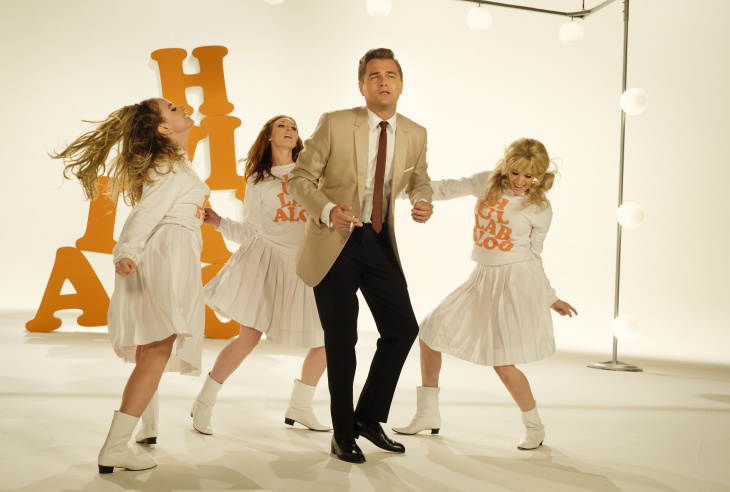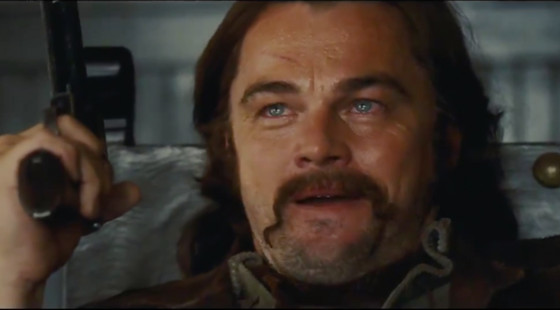4. The Future of Cinema

Once Upon a Time in Hollywood is a one-of-a-kind movie. It’s a high budget movie, done with an exceptional artistic freedom and with an original screenplay. This is almost a miracle in 2019. In the last ten years, this type of movies is disappearing; we witnessed a steady growth of sequel, prequel, re-boot and franchise movies.
The undisputed champion of the industry – right now – is the superhero movie; obviously, making money is always been one of the main target of the cinema industry, but in the past producers were ready to bet their money on original movie. This led to unbelievable winnings and disastrous defeat – the perfect example is Michael Cimino’s The Deer Hunter and Heaven’s Gate, two masterpieces that were, respectively, his biggest and lowest hit -, but, at least, they wanted to preserve the artistic side of filmmaking.
Today they’re playing safe most of the times and always winning. Superhero movies make billions every year, cashing on the usual cliches: superhero suit, over dramatized plot, over dramatized soundtrack, superficial good vs. bad characters.
This is the future of cinema. But, here it comes Quentin Tarantino and his new movie. He was able to make a great deal. $100 million for the budget; total and complete freedom; original screenplay; great cast. This is a big risk for everybody. It feels like a sparkle of New Hollywood attitude in today’s ordinary cinema. It’s likely that this is one of the last big budget movie of this kind.
On the other hand, streaming services are changing the fruition of cinema globally. They give you the opportunity to watch films from the comfort of your house, with fairly low prices. They also produce movies that aren’t even released on the big screen but only on their platforms. Cinema is losing his old charm: the excitement of purchasing the tickets, the smell of pop corn, the dark room, the reclining seats.
Tarantino is fighting against the drift of modern cinema and this movie is the ultimate proof. He said at CinemaCon: “I love movies and I love movies in movie theaters. They are my favorite place in the world”.
It doesn’t matter if it’s going to be a box office success or not. Tarantino is asking everybody to go see the movie in the theater, because “going to the movies” will save the experience of cinema.
5. Cinephile’s Paradise

Quentin Tarantino lives and breaths cinema. He dropped out of high school and stated working at Pussycat Theater, a porno theater; later, he had a job in a Video Archives in Manhattan Beach; before debuting with Reservoir dogs in 1992, he sold True Romance and Natural Born Killers screenplays to Tony Scott and Oliver Stone, respectively.
His movies – wether they are noir, western or action – always dealt with cinema itself; he’s always been able to combine an enormous number of references from other movies, albeit keeping his vision and style. This is why, when we refer to one of his movie or we see similarities in other’s , we use the term “Tarantinian”. He is a true author. Knowing his passion for film references, this could be his magnum opus.
The movie is set in Hollywood; the two main characters are, respectively, an actor and a stunt double; some of the characters portrayed were actual film stars. This movie is Cinema, with the capital letter.
If you are still a little bit skeptical, just look at the trailer. 100 seconds, six movie references. There is a part of the Django Unchained’s set at the beginning, during the interview of Rick Dalton and Cliff Booth and the way the cowboys fell to the ground dead – in the fast editing of the fictional western tv serial – is another homage to Sergio Leone, after the clear love letter to him in the title.
Three movies are shown: outside Cinerama Dome, there is the poster of Krakatoa, East of Java, the 1969 disaster movie directed by Bernard L. Kowalski; the Vogue cinema’s marquee reports the screening of The Night They Raided Minsky’s, the 1968 musical by William Friedkin; at last, while Brad Pitt’s character is speeding down the street in a light blue convertible, we see a blurry marquee with Romeo and Juliet by Franco Zeffirelli. Moreover, the aforementioned Pussycat theater is also there.
It’ll be worth seeing multiple times Once Upon a Time in Hollywood just to catch every single little and well-thought movies quotes that Tarantino will happily give us. We’ll have to analyze meticulously every single frame to discover the real essence of the movie. This will be a pleasure.
6. It’s a Quentin Tarantino Movie

The cast is exceptional; the background stories are interesting and intricate; the settings and the Pulp Fiction’s reference are promising; the battle against the modern route of cinema is justifiable; the quantity and quality of films quotes will be mind-blowing. But, let’s face it, the main reason why we can’t wait to see this movie is Quentin Tarantino. We can’t wait to see “WRITTEN AND DIRECTED BY QUENTIN TARANTINO”.
We already know the recipe for his movies: over the top dialogue, dense of pop culture references and swear-words; a good dose of stylized violence, with tons of blood; a cult soundtrack, full of never heard gems (until now we heard Straight Shooter by The Mamas and The Papas – the sheet of the music from this song was found on a grand piano in Sharon Tate’s house – and Bring a Little Lovin’ by Los Bravos); distinctive characters forever printed in cinema’s history. And we must not forget the technical perfection when it comes to directing, cinematography, editing, costume designs and set designs.
All this characteristics will be present in Once Upon a Time in Hollywood. The fil rouge that connects all his movies will be there also in this one. DP Robert Richardson said it all: “It oscillates between humorous, serious, spooky; it’s playful, it’s not easily describable, but it’s very, very Quentin”.
Nevertheless, we never get tired of a new Tarantino’s movie. We already know everything about his notion of filmmaking and, yet, we’re never bored of another over the top line, another stylized moment of violence, another cult song or another cult character because he is able to stay fresh and still relevant today, after his revolution in the 1990’s.
Tarantino has never changed, he is “the same guy that he was when we did Reservoir Dogs” as Michael Madsen said. He is still the film connoisseur, who dropped out of high school because he loved cinema more than anything else. Fame and fortune didn’t change who he is.
This is going to be anther stumbling stone in his path. He never let us down. He won’t even this time.
Deep down, Quentin Tarantino is one of us. Somebody who thinks that cinema can change the world or – at least – can change your life. Surely he changed his life and his cinema changed us.
Ladies and gentlemen, please seat still in your chair, turn off all personal electronic devices and prepare to enjoy the show. The 9th movie from Quentin Tarantino is about to go down.